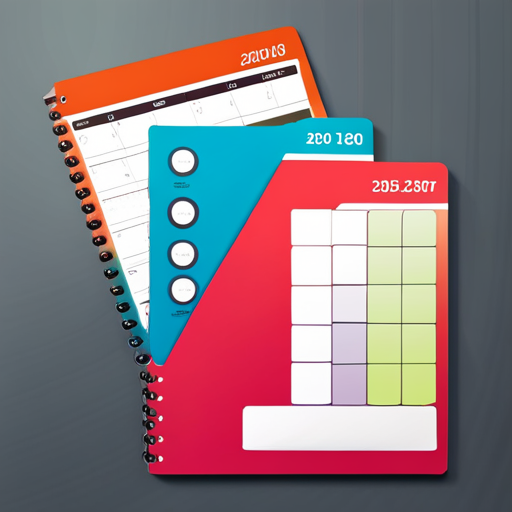"Cherishing Little Steps - A Haven for Baby and Family Journeys"
Teen Time Management Skills
Are you constantly running in a chaotic race against time, struggling to keep up with the demands of school, extracurricular activities, and social life? It’s like juggling a dozen colorful balls, each one threatening to fall and shatter into a million pieces.
But fear not, because mastering teen time management skills can help you find balance and reclaim control over your hectic schedule. From setting clear goals and prioritizing tasks to creating a well-structured schedule and managing distractions, these skills are the secret ingredients to unlocking a world where time becomes your ally rather than your enemy.
So, join us on this journey of self-discovery and learn how to make every second count.
Key Takeaways
- Clear goals and prioritization are essential for effective time management.
- Creating a schedule helps in managing time and staying focused.
- Avoiding procrastination is crucial for efficient time management.
- Breaking tasks into manageable chunks increases productivity and reduces overwhelm.
Setting Clear Goals

To effectively manage your time as a teenager, it’s crucial to set clear goals. Effective planning and time management strategies are key to achieving success in all areas of your life. When you have clear goals, you have a roadmap that guides your actions and helps you make the most of your time.
Start by identifying what you want to accomplish. Do you want to improve your grades, excel in a sport, or pursue a hobby? Once you have identified your goals, break them down into smaller, manageable tasks. This will help you stay focused and motivated.
Next, prioritize your tasks based on importance and urgency. Use a planner or a digital calendar to keep track of your commitments and deadlines. Set aside specific time slots for each task and stick to them. Avoid multitasking, as it can lead to inefficiency and reduced productivity.
Remember to be flexible and adapt your plans as needed. Life can be unpredictable, and unexpected events may require adjustments to your schedule. Be willing to reassess and make changes when necessary.
Prioritizing Tasks

Once you have set clear goals, it’s important to prioritize your tasks using a planner or digital calendar. Effective task prioritization is a vital time management technique that will help you stay organized and focused. By giving priority to the most important and urgent tasks, you can ensure that you make the most of your time and accomplish what needs to be done.
Start by listing all the tasks you have to complete. Then, determine which tasks are the most important and require immediate attention. These could be tasks with deadlines or tasks that contribute directly to your goals.
Next, consider the tasks that are less urgent but still important. These tasks may not have a specific deadline but are necessary for your long-term success.
Once you have identified the priority tasks, allocate time slots in your planner or digital calendar to work on them. Be realistic about how much time you need for each task and consider any other commitments or obligations you have. Break down larger tasks into smaller, manageable chunks to make them more achievable.
Remember, effective task prioritization isn’t about doing everything at once. It’s about making deliberate choices and focusing on what matters most. By using these time management techniques, you can ensure that you’re making progress towards your goals and avoiding unnecessary stress and overwhelm.
Creating a Schedule

When creating a schedule, it’s important that you regularly and proactively allocate specific time slots for your prioritized tasks. By doing so, you can effectively manage your time and ensure that you stay on track. To help you in this process, here are some time management techniques and strategies that you can use:
| Time Slot | Task | Duration |
|---|---|---|
| 8:00 AM – 9:00 AM | Study for Math | 1 hour |
| 9:00 AM – 10:00 AM | Complete English | 1 hour |
| 10:00 AM – 11:00 AM | Exercise | 1 hour |
| 11:00 AM – 12:00 PM | Lunch Break | 1 hour |
Creating a schedule allows you to allocate dedicated time for each of your tasks, ensuring that you give them the attention they deserve. By breaking down your day into specific time slots, you can prioritize your tasks and work on them more efficiently. It also helps you to avoid procrastination and stay focused on your goals.
When creating your schedule, consider the importance and urgency of each task. Start with the most important and time-sensitive ones, and allocate sufficient time for their completion. Be realistic about the time it takes to complete each task, and remember to include breaks and relaxation time as well.
Avoiding Procrastination

When creating your schedule, it’s crucial to implement strategies for avoiding procrastination. Overcoming delays and managing your time effectively are essential skills that will benefit you both now and in the future. Here are four time management techniques that can help you stay on track and avoid falling into the procrastination trap:
-
Prioritize tasks: Start by identifying the most important tasks and tackle them first. This way, you won’t waste time on less significant activities and can focus on what truly matters.
-
Break tasks into smaller steps: Large tasks can be overwhelming and lead to procrastination. Break them down into smaller, more manageable steps. By accomplishing these smaller tasks, you’ll gain momentum and feel motivated to keep going.
-
Set deadlines and stick to them: Assign deadlines to your tasks and hold yourself accountable. Having a specific timeframe will help you stay focused and avoid putting things off until the last minute.
-
Eliminate distractions: Identify the things that distract you the most, whether it’s your phone, social media, or noisy surroundings. Minimize or eliminate these distractions to create a productive environment that allows you to concentrate on your work.
By implementing these time management techniques, you can overcome delays and stay on top of your schedule, leading to increased productivity and reduced stress. Remember, it’s all about taking control of your time and making the most of it.
Breaking Tasks Into Manageable Chunks

To effectively manage your time as a teenager, start by breaking tasks into manageable chunks. This simple but powerful strategy can help you stay organized, reduce overwhelm, and increase productivity. When you have a large task or project ahead of you, it can be intimidating to tackle it all at once. Breaking it down into smaller, more manageable parts makes it easier to approach and complete.
Imagine you have a research paper to write. Instead of trying to write the entire paper in one go, break it down into smaller tasks like researching, outlining, writing the introduction, body paragraphs, and conclusion. By focusing on one task at a time, you can make steady progress without feeling overwhelmed.
Here’s an example of how you can break down a task using a table:
| Task | Description |
|---|---|
| Research | Gather information from credible sources |
| Outline | Organize main ideas and supporting details |
| Write Introduction | Capture reader’s attention and provide context |
| Write Body Paragraphs | Present arguments and supporting evidence |
| Write Conclusion | Summarize main points and provide a closing |
Utilizing Time-Blocking Techniques

To effectively utilize time-blocking techniques and maximize your productivity, it’s crucial to continue breaking tasks into manageable chunks. Time-blocking is a powerful tool that can help you take control of your schedule and make the most of your time.
Here are four key strategies to help you effectively implement time-blocking into your routine:
-
Prioritize your tasks: Start by identifying your most important tasks and assign them specific time blocks. By focusing on your highest-priority items first, you ensure that you allocate dedicated time for them.
-
Set realistic goals: Break down your tasks into smaller, more achievable goals. This won’t only make them less daunting but also help you stay motivated and on track.
-
Eliminate distractions: During your designated time blocks, eliminate any potential distractions. Put your phone on silent, close unnecessary tabs on your computer, and find a quiet, distraction-free environment to work in.
-
Schedule breaks: Remember to incorporate short breaks into your time-blocking schedule. Taking regular breaks will help you maintain focus and prevent burnout.
By following these time-blocking strategies, you can effectively plan your day, manage your time more efficiently, and accomplish your tasks with greater ease.
Managing Distractions

Minimizing distractions is essential for effective time management. In today’s digital age, it’s easy to get sidetracked by notifications, social media, and other online temptations. To stay focused and make the most of your time, it’s crucial to eliminate these digital distractions and create a productive environment.
Start by turning off notifications on your phone or putting it on silent mode. This will help you resist the urge to check your phone every time it buzzes. Consider using apps or website blockers to limit your access to social media or other time-wasting websites during your study or work sessions.
Creating a physical space that promotes productivity is also vital. Find a quiet area where you can concentrate without interruptions. Keep your workspace clutter-free and organized, as a messy environment can lead to distractions and decreased focus.
Additionally, managing distractions also means managing your time effectively. Break your tasks into manageable chunks and set specific goals for each session. Take short breaks between tasks to recharge and avoid burnout.
Learning to Say No

Eliminating distractions and creating a productive environment are crucial for effective time management, but another important skill to develop is learning to say no.
As a teenager, you may often find yourself overwhelmed with various commitments and obligations. Learning to say no is about developing assertiveness skills and setting boundaries to protect your time and energy.
Here are four practical tips to help you master the art of saying no:
-
Understand your priorities: Before agreeing to take on a new task or commitment, take a moment to evaluate whether it aligns with your goals and priorities. If it doesn’t, it’s okay to decline politely.
-
Practice assertiveness: Saying no can be challenging, especially if you’re used to pleasing others. Practice assertiveness by using clear and direct language, expressing your needs and limitations without feeling guilty.
-
Offer alternatives: If you genuinely want to help but can’t commit to the request, offer alternative suggestions or resources that may be of assistance. This shows that you value the person’s request while still respecting your own boundaries.
-
Be firm but polite: It’s important to be firm in your decision while maintaining politeness and respect. Remember, saying no isn’t a reflection of your worth or kindness; it’s about taking care of your own well-being.
Seeking Support and Accountability

You can enhance your time management skills by enlisting the support of others and holding yourself accountable.
Seeking support and accountability is crucial in developing effective time management habits.
One way to seek support is by joining support groups or finding a study buddy who shares similar goals and values. Being part of a supportive community can provide encouragement, motivation, and guidance, helping you stay focused and on track.
Additionally, there are various time management apps available that can assist you in organizing your tasks, setting reminders, and tracking your progress. These apps can be customized to suit your specific needs and preferences, making it easier for you to stay organized and manage your time effectively. They can also provide you with insights and statistics about your productivity, which can help you identify areas for improvement.
Practicing Self-Care

To ensure effective time management, it’s important for you, as a teen, to prioritize self-care activities. Taking care of yourself is crucial for maintaining mental and physical well-being, and it can greatly enhance your productivity and overall happiness. Here are four self-care tips that can help you effectively manage your time and maintain a healthy balance in your life:
-
Schedule regular breaks: It’s easy to get caught up in your tasks and forget to take breaks, but scheduling regular breaks throughout your day is essential for recharging your mind and preventing burnout. Use these breaks to engage in activities that relax and rejuvenate you, such as going for a walk, listening to music, or practicing deep breathing exercises.
-
Get enough sleep: Adequate sleep is crucial for maintaining focus, concentration, and overall cognitive function. Make sure you prioritize getting enough sleep each night by establishing a consistent sleep routine and creating a relaxing sleep environment.
-
Engage in hobbies and activities you enjoy: Taking time to do things you love and are passionate about can help reduce stress and improve your overall well-being. Whether it’s playing a musical instrument, painting, or playing sports, make sure to carve out time for activities that bring you joy.
-
Practice mindfulness and relaxation techniques: Incorporating mindfulness and relaxation techniques into your daily routine can help reduce stress and anxiety. Consider exploring practices such as meditation, yoga, or journaling to help calm your mind and promote self-reflection.
Frequently Asked Questions
How Can I Deal With Unexpected Interruptions or Distractions While Trying to Manage My Time as a Teen?
When dealing with unexpected interruptions or distractions, it’s essential to have effective time management strategies. Prioritize your tasks, set boundaries, and learn to say no when necessary. Stay focused and adaptable to maintain control over your time.
Is It Necessary for Me to Say No to Every Social Invitation in Order to Effectively Manage My Time?
You don’t have to become a hermit to manage your time effectively. Saying no to some social invitations can help you prioritize commitments and find a work-life balance. Try using time-blocking techniques and setting goals and deadlines.
What Are Some Effective Techniques to Avoid Procrastination When It Comes to Completing School Assignments?
To avoid procrastination with school assignments, try time blocking. Set aside specific time blocks for each assignment. You can also use the Pomodoro technique, working for 25 minutes with short breaks in between. Stay focused and get it done!
How Can I Balance Schoolwork and Extracurricular Activities Without Feeling Overwhelmed?
Feeling overwhelmed with balancing schoolwork and extracurricular activities? Prioritize tasks based on importance and urgency. Use time management strategies like creating a schedule and breaking tasks into smaller parts. You got this!
Are There Any Specific Self-Care Practices That Are Particularly Beneficial for Teenagers in Terms of Time Management?
When it comes to time management, self-reflection exercises can help you understand your priorities better. By identifying what truly matters to you, you can make informed decisions about how to allocate your time effectively.
Conclusion
Congratulations! You have now equipped yourself with essential time management skills that will set you up for success in both your academic and personal life.
Remember, just like a skilled conductor directs an orchestra, you can orchestrate your time to create beautiful melodies of productivity and balance.
So go out there, set clear goals, prioritize tasks, and create a schedule that works for you.
With practice, determination, and a little self-care, you’ll be amazed at what you can achieve.
Embrace the power of time management, and watch your life flourish!


